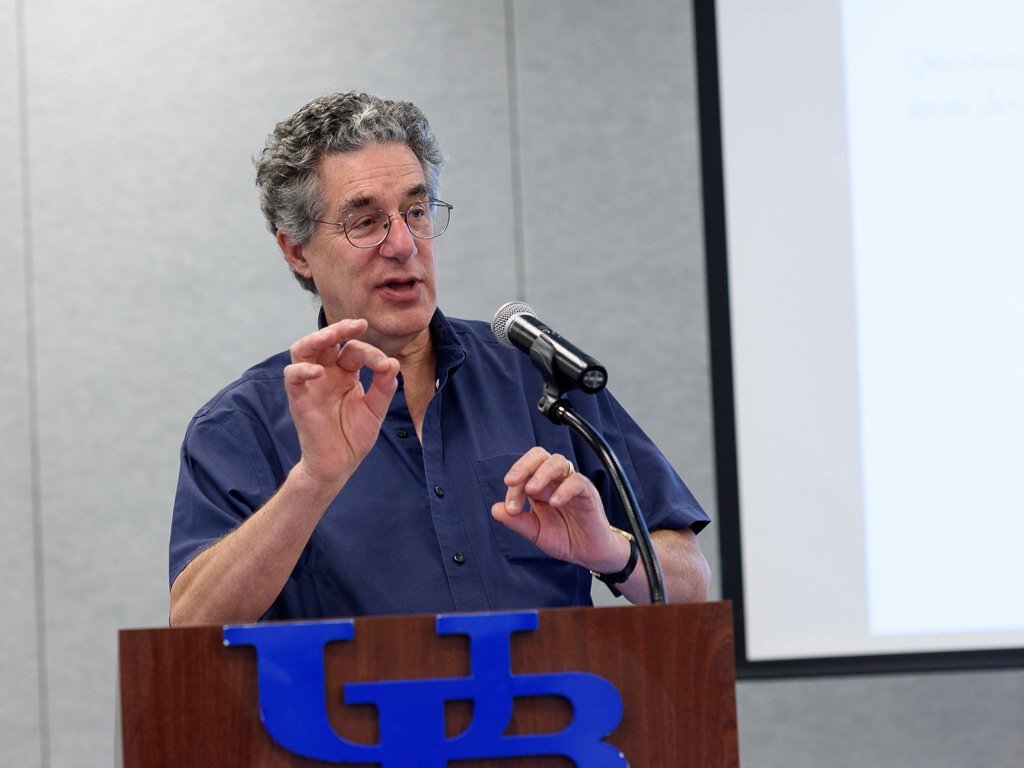Artificial language cannot replace the complexity of natural language, linguist says

TEHRAN - Artificial Intelligence (AI) is currently a hot topic of discussion in the tech world, with many experts touting it as the future of technology.
One of the latest AI technologies to generate significant interest is Chat GPT, an OpenAI language chatbot that can help users learn about various topics and even gain knowledge from the user's questions.
However, Chat GPT has recently become embroiled in a major controversy; while some hail AI technology like Chat GPT as a step towards artificial general intelligence, others criticize its potential to outperform human intelligence.
Noam Chomsky, a renowned linguist, has even written a scathing indictment of Chat GPT and other similar programs, questioning their ability to match human intellect and creativity. As AI technology continues to evolve, its impact on society and human thought processes will undoubtedly remain a subject of intense debate and scrutiny.
The recent intellectual conflict surrounding the capacity and power of artificial intelligence and artificial language machines has been a topic of heated debate in the academic community. To shed light on this issue, the Tehran Times recently interviewed Ray Jackendoff, an American linguist, and co-director of the Center for Cognitive Studies at Tufts University.
During the interview, Jackendoff was asked about the ongoing debate surrounding the evolution of language and the idea of genetic mutation as opposed to the innate capability of humans. In response, Jackendoff confirmed that "most people think that an innate capacity has to develop through genetic mutation."
This conflict has prompted a new generation of linguists to attempt to find a compromise between the views of Noam Chomsky, who argues that language is a specific capability of humans and those who believe in the mutation theory, which posits that language emerged through genetic mutations.
As the debate continues, linguists are working to deepen our understanding of the origins and nature of language, as well as its potential to be replicated through artificial intelligence and language machines.
When asked about whether there is a clear distinction between language and the mind, Jackendoff's response was “mixed” noting that while many species, such as chimpanzees and gorillas, have complex thoughts without language, there are certain concepts, such as numbers and history, that likely require the use of language.
Turning to the topic of artificial intelligence and language, Jackendoff was asked about the potential implications of recent advancements in these areas for linguistics. While some may argue that these advancements call into question the idea that language is an innate capability of humans, Jackendoff expressed skepticism about whether machines truly understand language in the same way humans do.
He cited his doubts about Chat GPT and the creators' lack of understanding about how it works, stating that “he has no position” on the question of whether language acquisition is unique to humans or if machines are simply an extension of human intelligence.
As the field of linguistics continues to evolve alongside advances in technology, linguistic insights provide valuable contributions to our understanding of language and its relationship with the human mind and machine intelligence.
Artificial Intelligence (AI) has been a topic of much discussion and debate in recent years, with many experts and scholars weighing in on its potential to surpass human intelligence. In a recent piece for the New York Times, renowned linguist Noam Chomsky argued that AI and ChatGPT (an AI-based language model) are far from true intelligence. But can machines eventually surpass human intelligence, and how do we define "true intelligence"?
According to linguist and cognitive scientist Ray Jackendoff, AI has already surpassed human intelligence in certain domains. "AI has long ago surpassed human intelligence in things like playing chess and doing massive numerical computations," Jackendoff said. "From what I can gather, though, the most advanced humanoid robots are disastrously bad at such things as opening doors or slicing bread, activities that we find utterly trivial. I would consider this a form of intelligence too."
However, the question of whether AI can surpass human intelligence in a broader sense is still up for debate. There are also questions about what exactly we mean by "true intelligence." Should it be measured by ethical considerations or emotional intelligence?
Language is often considered a hallmark of human intelligence, leading some to question whether machines can ever truly learn and produce the same capabilities. When asked about the potential for machines to replicate human language, Jackendoff declined to speculate on the future.
However, it raises the question of whether machines can learn and produce certain aspects of language, given that it is a product of human interaction with the environment over time. While machines have made significant advancements in language processing, it remains to be seen if they can fully replicate the nuances and complexities of human language.
According to linguistic expert Ray Jackendoff, advancements in artificial intelligence and machine learning will not likely replace natural language. In response to the question of whether artificial language (AL) could produce a new kind of unified language that replaces natural language (NL), Jackendoff notes that language will likely maintain its character of the present day.
“While basic arithmetic expressions like "2+2=4" are universally understood, they cannot replace the complexity of natural language, which can ask questions, give instructions, and express emotions through poetry, history, and fiction,” he added
Although, creating a universal language remains a challenge, as seen in the failed experience of Esperanto, “ English has already colonized much of the world, and some may argue that it has become a second unified language.”
Despite the advancements in artificial intelligence, it seems that natural language will remain unique to human communication.
Leave a Comment